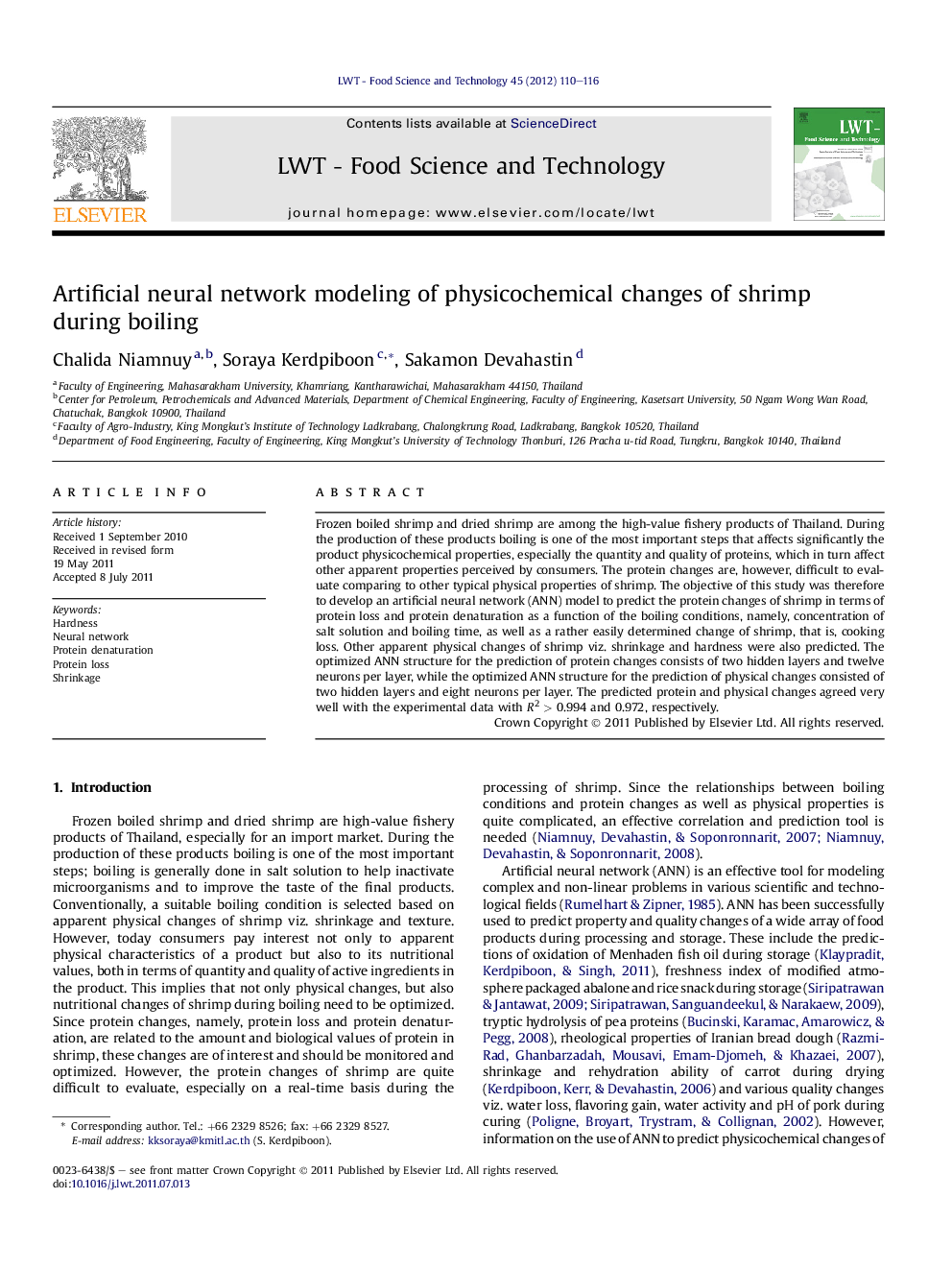| Article ID | Journal | Published Year | Pages | File Type |
|---|---|---|---|---|
| 6405793 | LWT - Food Science and Technology | 2012 | 7 Pages |
Frozen boiled shrimp and dried shrimp are among the high-value fishery products of Thailand. During the production of these products boiling is one of the most important steps that affects significantly the product physicochemical properties, especially the quantity and quality of proteins, which in turn affect other apparent properties perceived by consumers. The protein changes are, however, difficult to evaluate comparing to other typical physical properties of shrimp. The objective of this study was therefore to develop an artificial neural network (ANN) model to predict the protein changes of shrimp in terms of protein loss and protein denaturation as a function of the boiling conditions, namely, concentration of salt solution and boiling time, as well as a rather easily determined change of shrimp, that is, cooking loss. Other apparent physical changes of shrimp viz. shrinkage and hardness were also predicted. The optimized ANN structure for the prediction of protein changes consists of two hidden layers and twelve neurons per layer, while the optimized ANN structure for the prediction of physical changes consisted of two hidden layers and eight neurons per layer. The predicted protein and physical changes agreed very well with the experimental data with R2Â >Â 0.994 and 0.972, respectively.
⺠The prediction of protein changes of shrimp as well as physical changes of shrimp as a function of the boiling conditions and cooking loss were developed using ANN. ⺠The optimized ANN structure for the prediction of protein changes and physical changes consist of two hidden layers and twelve neurons per layer and two layers and eight neurons per layer, respectively. ⺠The predicted protein and physical changes agreed very well with the experimental data with R2 > 0.994 and 0.972, respectively.
